
We last heard about Midori back when AstianGO was integrated into the open-source browser for providing a more privacy-friendly search experience.
Even though the Midori web browser has been around since 2007, the development of it has seen its share of changes along the years, with the most major one being the merge with the Astian Foundation back in 2019.
After the merge, Midori was an electron-powered browser based on Chromium with a few privacy protection features in the mix.
However, Midori has since parted ways with Chromium for the next best thing, Gecko, which you must've seen being used in browsers such as Firefox, LibreWolf, Tor Browser and more.
Allow me to show you what the Gecko-based Midori 11 release has to offer.
Midori 11: What to Expect?
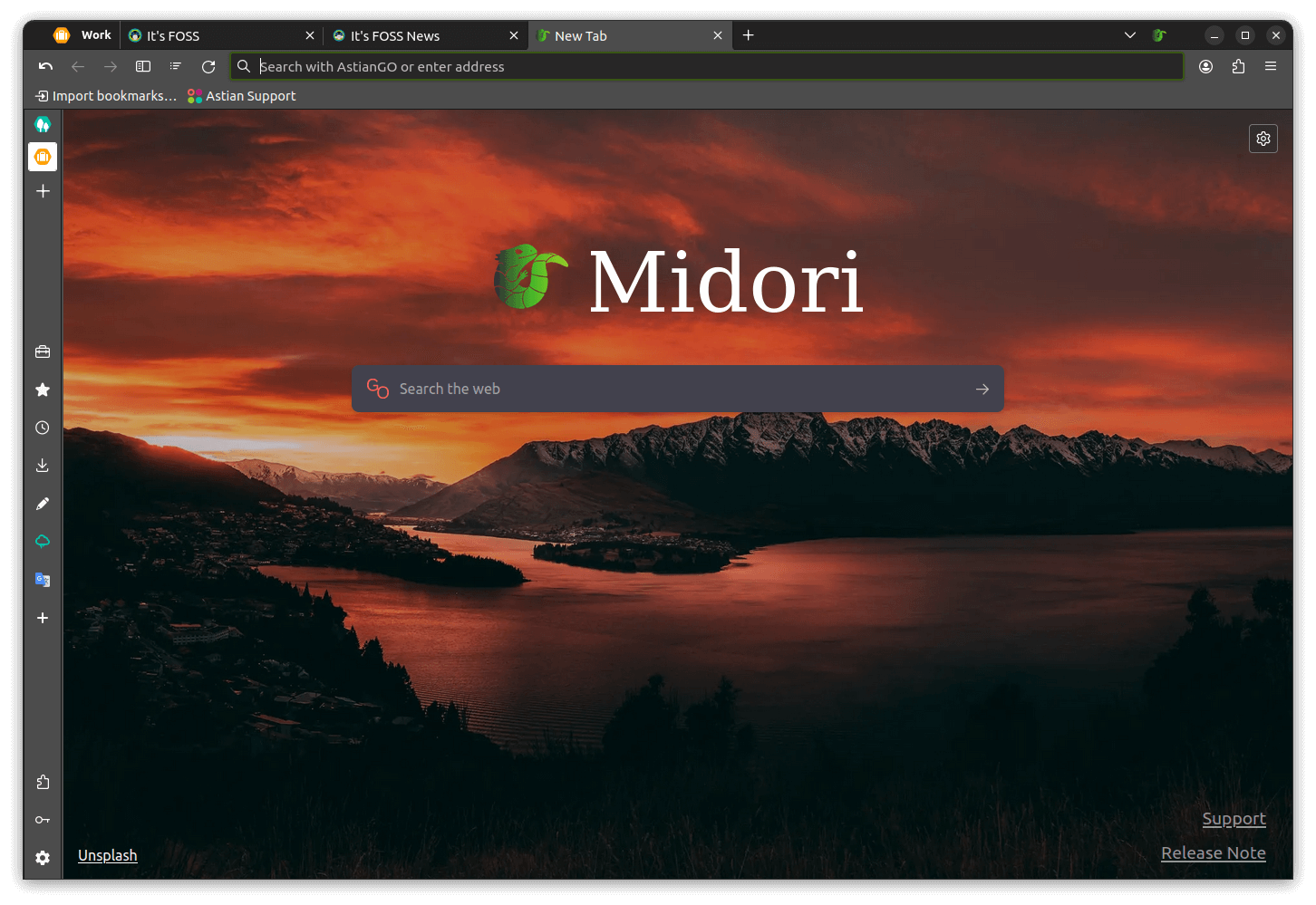
Dubbed as the “fastest and lightest” version of Midori ever, this release has plenty of improvements to offer over its predecessors.
Some key highlights include:
- Gecko-Based Revamp
- Visual Upgrades
- Workspaces Support
Gecko-Based Revamp
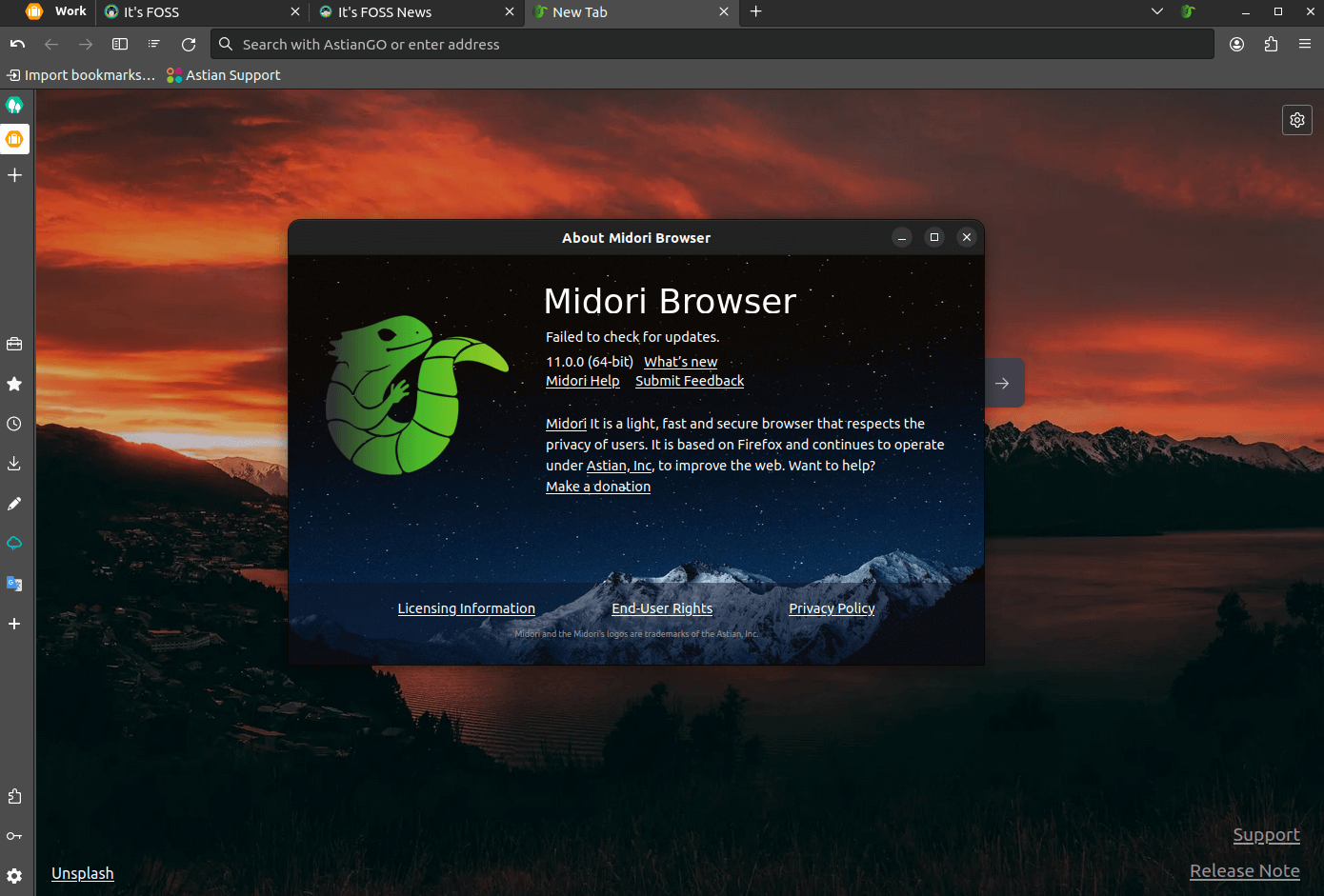
According to the developers, basing Midori on Gecko has resulted in up to 15% better performance compared to Chromium-based browsers, and a bigger 20% uptick in performance when compared to older Midori versions.
They also claim that even though the memory consumption has increased, they can still provide a lightweight and fast browsing experience.
Visual Upgrades
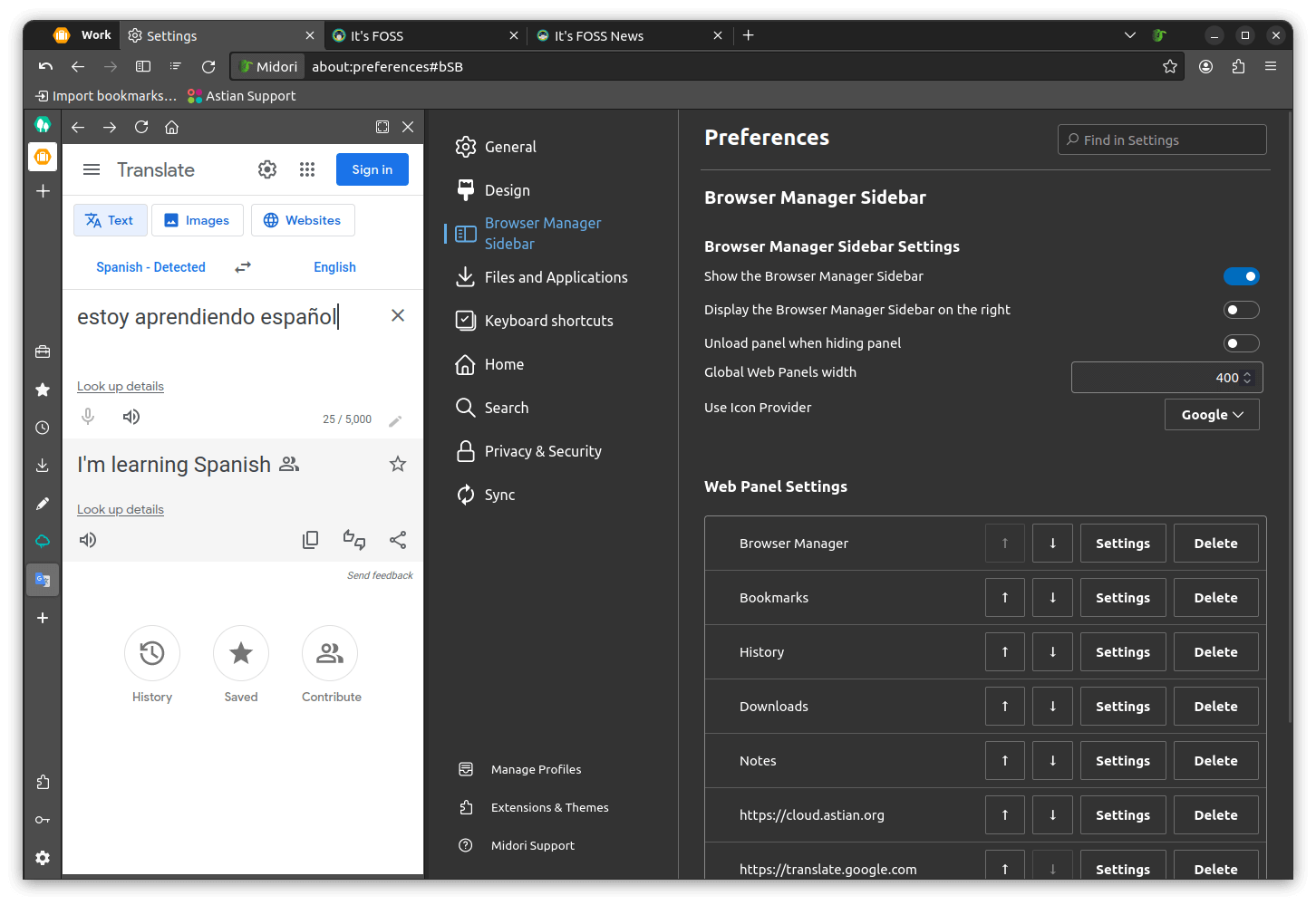
The most obvious visual change with Midori is the new sidebar menu that comes with all the usual browser options such as Bookmarks, History, Downloads, and Notes. Pretty useful, kind of like Vivaldi offers.
There is also support for WebApps, by default, Midori includes the apps for Google Translate and Astian Cloud.
You can also add other apps such as Telegram, WhatsApp Web, or even other websites that support such functionality.
Then there are the refreshed icons across the browser, and improved default themes alongside the introduction of two new themes, “Midori Fluerial UI” and “GNOME”.
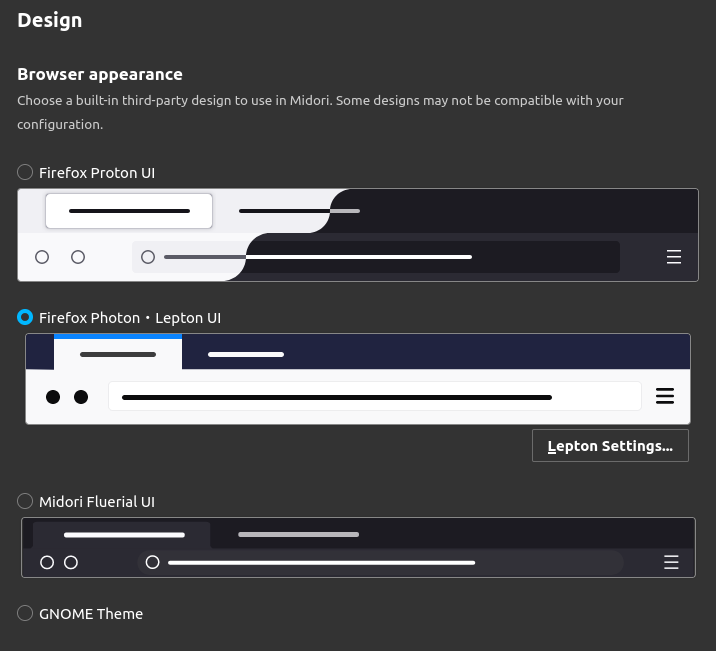
Midori 11 also features better tab management, and support for Light/Dark themes, which can be set to follow your system's setting.

Workspaces Support
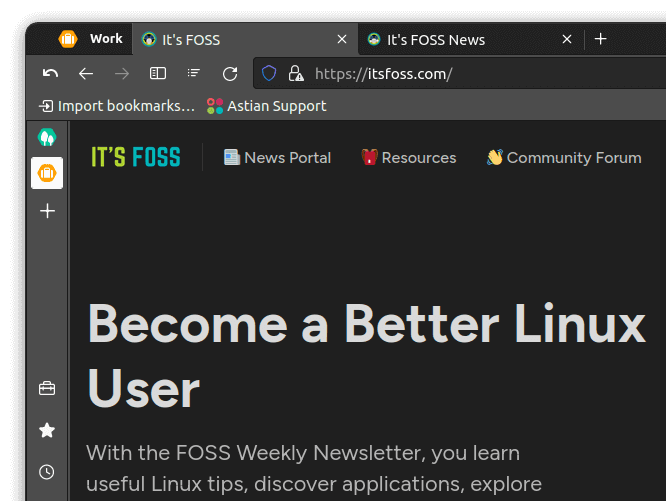
You must've noticed the “Work” title on all the screenshots above. Well, that is the new “Workspaces” feature in action.
With Midori 11, you can now use multiple workspaces to multitask effortlessly. You will first have to enable it via the settings to get started.
Go into the settings menu, then search for 'workspaces', then click on “Enable Workspaces”.
Thereafter, you can go into the “Workspace Settings…” menu for tweaking it further and add new workspaces.
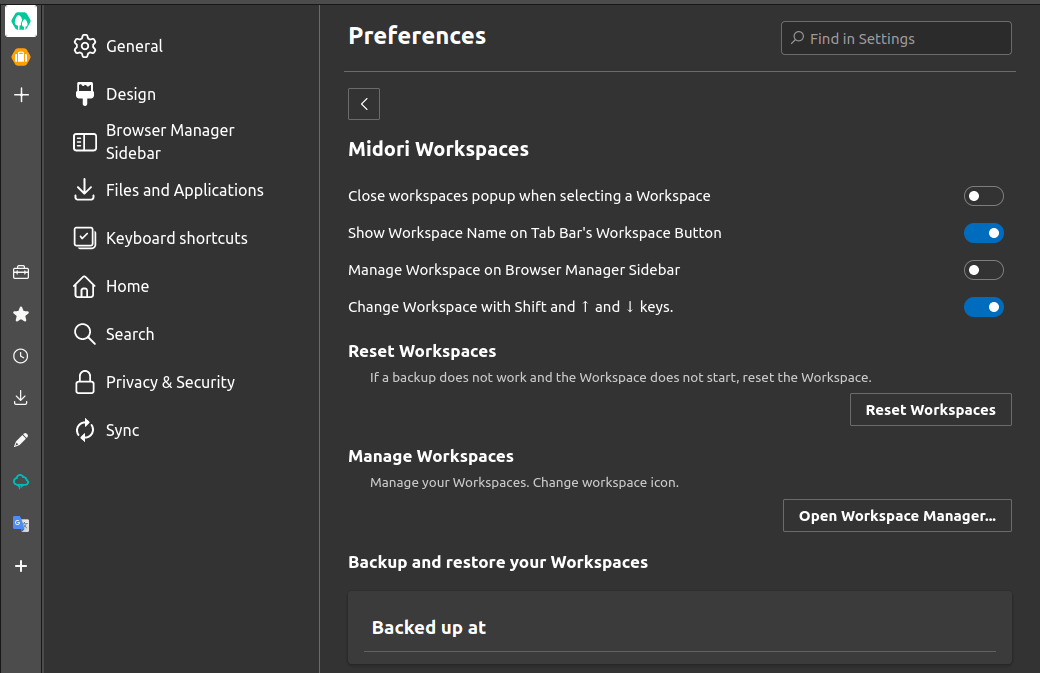
You can also set specific icons to the workspaces to differentiate between them easily.
Suggested Read 📖
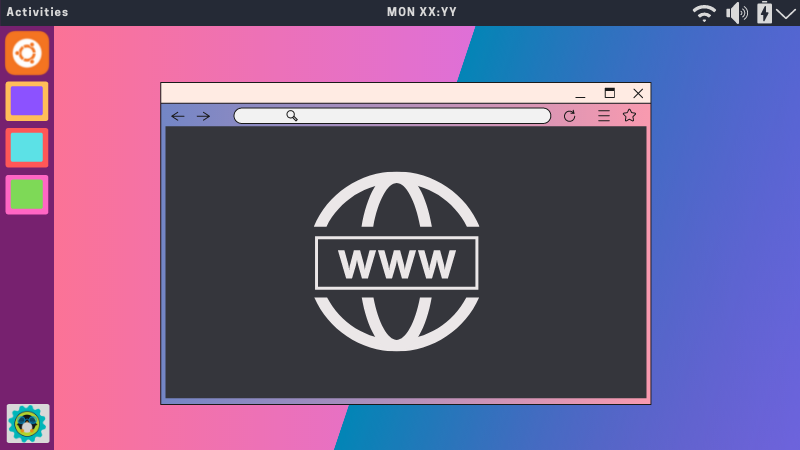
When all is set, you can switch between the workspaces by clicking on them in the sidebar.
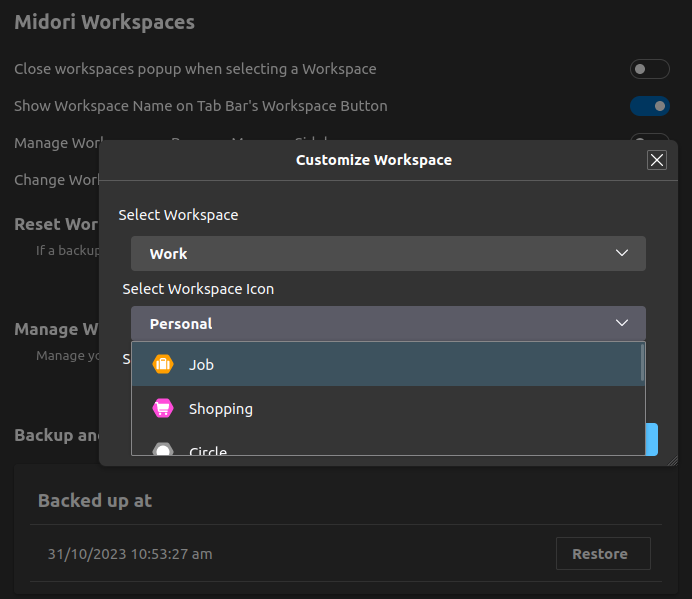
Midori will even backup your workspaces at random time intervals so that you don't lose them in the event of an abrupt shutdown.
Personally, I would like more web browsers based on Gecko, rather than Chromium.
And with what I experienced in my short usage with Midori 11, I can say that this has the potential to be an open-source Chrome alternative for Linux.
That being said, I did face some weird bugs here and there, nothing a few patches can't fix, though.
🛠️ Other changes
As for the rest of the improvements, here are some notable ones:
- Midori now supports OTA updates, similar to what you see on Firefox.
- It is now possible to import browser data from browsers like Vivaldi, Opera, Chrome, etc.
- Multi-Account Containers support for sorting your browsing into different color-coded tabs.
- Native integration with its MidoriVPN and Astian Cloud services.
You may go through the official blog post to learn more about this release.
📥 Get Midori 11
This new Gecko-based release of Midori is available for Linux, Windows, and Android. You can head over to the official website to grab the package of your choice.
If you are interested in the source code, you can visit Midori's GitLab repo for that.
I really hope they make it available on the Flathub store and the Snap store in the future for a more accessible experience for Linux users.
💬 Are you willing to give Midori 11.0 a try? Let me know your thoughts in the comments.
- Even the biggest players in the Linux world don't care about desktop Linux users. We do.
- We don't put informational content behind paywall. Your support keeps it open for everyone. Think of it like 'pay it forward'.
- Don't like ads? With the Plus membership, you get an ad-free reading experience.
- When millions of AI-generated content is being published daily, you read and learn from real human Linux users.
- It costs just $2 a month, less than the cost of your favorite burger.
Become a Plus Member today and join over 300 people in supporting our work.











